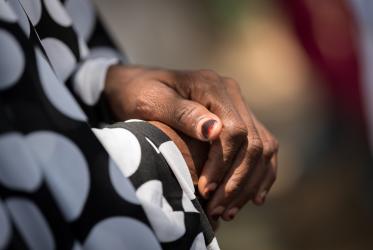Displaying 1 - 20 of 157
Faith Actors Reflect on Their Role in Reaching HIV Goals at ICASA
21 December 2023
Migrants in Argentina find listening ears and open hearts
04 November 2022
World mourns loss of Archbishop Desmond Tutu
30 December 2021
In a COVID-stricken world, “everyone is important”
23 October 2020
















